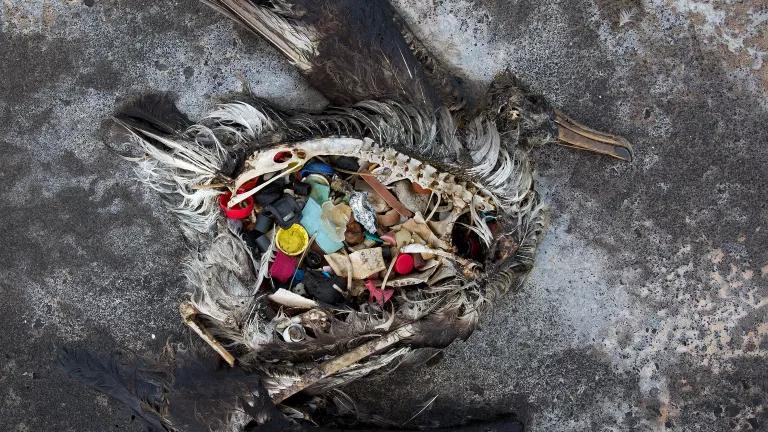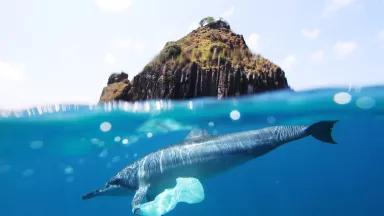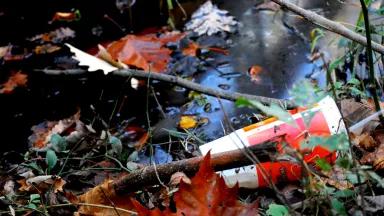The Worst of the Worst: High-Priority Plastic Materials, Chemical Additives, and Products to Phase Out

Rich Carey/Shutterstock
An estimated 242 million metric tons of plastic waste is generated globally every year, polluting our cities and our bodies and clogging the oceans. Plastic pollution has been linked to everything from infertility and cancer in humans to severe injury and death in wildlife. Unfortunately, the United States is one of the top generators.
We will never put an end to the plastics crisis without reducing the amount of plastic and toxic additives we put into the world. We should start by immediately phasing out the production and use of plastic polymers, chemical additives, and the types of plastic products that pose the greatest hazards and/or are unnecessary. For uses or functions of plastic that are currently essential, we must transition to safer materials.
This fact sheet provides a list of high-priority targets that must be immediately phased out. These plastics, additives, and products pose significant hazards to human health and the environment, are difficult to recycle and/or interfere with mechanical recycling systems, and/or are purely unnecessary.
Plastic pollution has been linked to everything from cancer in humans to death in wildlife.
A strong Global Plastics Treaty could help rid the world of harmful plastics—and as one of the world’s largest producers, the U.S. has a critical role to play.

Urge the Biden administration to enact a strong Global Plastics Treaty
Plastic pollution has been linked to everything from cancer in humans to death in wildlife. A strong Global Plastics Treaty could help rid the world of harmful plastics—and as one of the world’s largest producers and consumers of plastic, the United States has a critical role to play.






